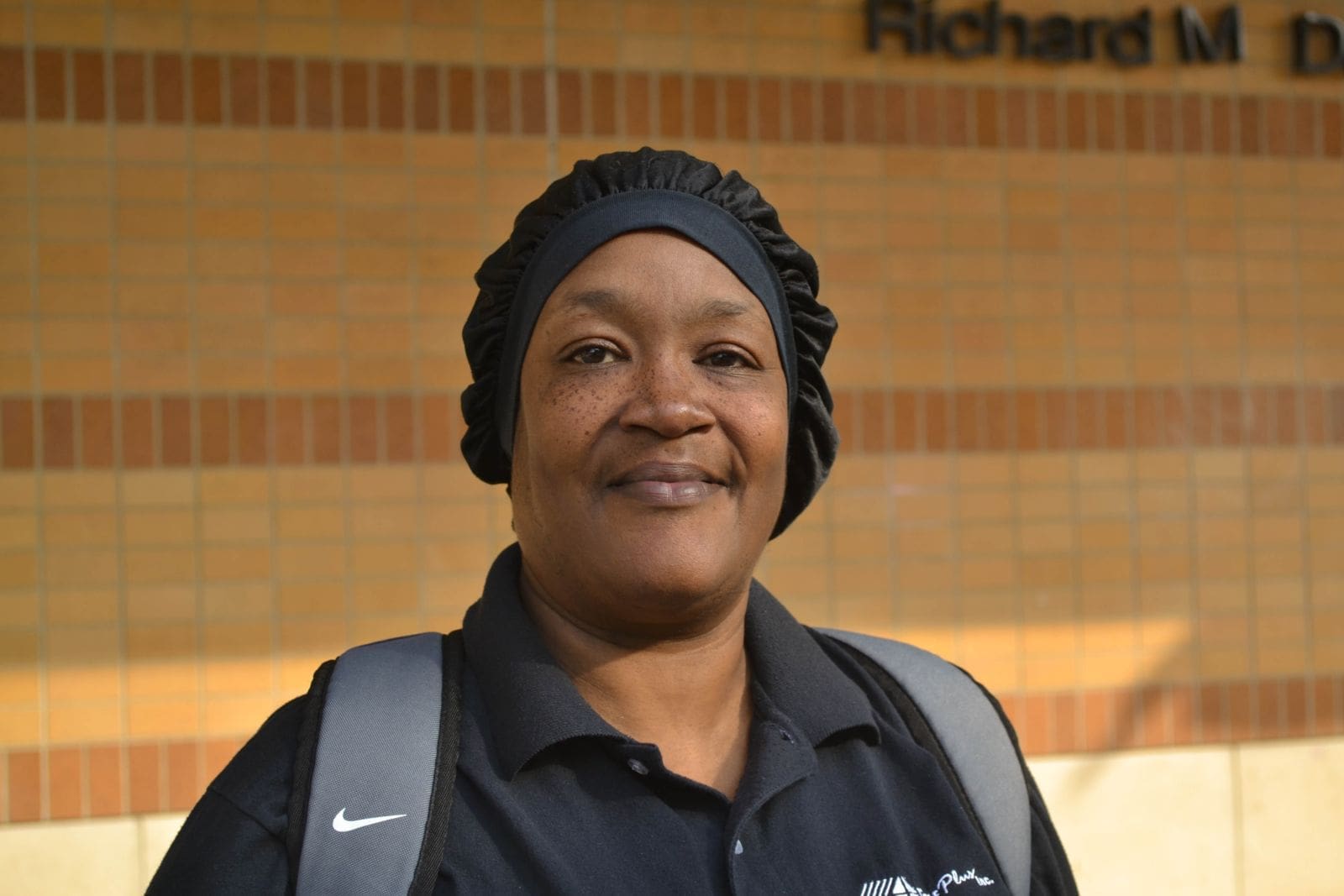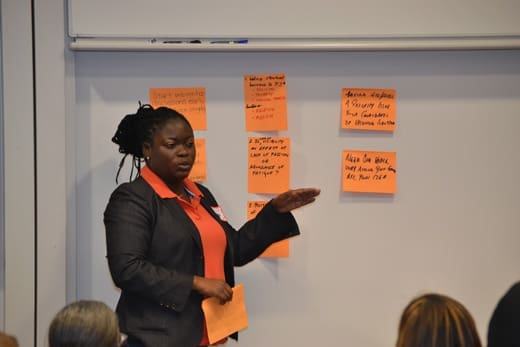Stigma: In and Out is a monthly series profiling the clients, providers and leaders of AFC’s Corrections Case Management program, which helps HIV-positive people emerging from prison or jail get the support they need upon reentry.
On a regular workday, Bridgette Funches is awake before the sun comes up, preparing for her day. She arrives to her office at 7 a.m. to prepare for client appointments, and then she leaves the office around 11 a.m. to begin her outreach in the community.
Funches is located at Haymarket Center’s Uptown location; the 40-year-old organization has five locations that provide adult detoxification, residential, and outpatient substance use services. Funches’ relationship with Haymarket Center began eight years ago; she spent two and a half years working in a recovery home for women overcoming substance use. She decided it was time to have a greater impact on communities affected by inequalities, so she began training to become a Corrections Medical Case Manager.
Funches remembers when no one talked about HIV prevention or awareness — and when there were no medications that an HIV-positive person could take to remain healthy and hopeful. She remembers the lack of education and stigma about living with HIV — including her favorite cousin, who died of AIDS-related complications. The pain of his death still brings her to tears.
“Loving these people like I loved my cousin who passed away, I will always be connected to this work in that way!” Her passion is driven by love and the glow on her clients’ faces and in their eyes when they see the light of optimism. Funches finds extreme importance in the mission of Haymarket Center and the work that she does on a daily basis to make sure that purpose is lived out.
Going into Cook County Jail to meet with clients is a crucial part of the Corrections Case Management program; every Thursday, Funches visits the jails and meets with clients soon to be released to prepare them for community services and entrance into the corrections case management program. When clients are released, she then has the capacity to support them in a multitude of ways: Transportation assistance, access to food, support groups and housing. Even gift cards are distributed to assist clients who have recently emerged from jail without immediate means of income purchase the basics — toothpaste, deodorant and body soap.
“Serving as a support system is very important in adherence, as it is much more difficult for a client to focus on adherence when their everyday needs are their priority,” said Funches. “Having support in various way helps the client to not feel alone, and to do things like get to their doctors’ appointments — literally!”
Despite the free access to the many resources Funches is able to provide returning citizens to make their lives easier, only about 20% of them will ever contact her, making her feel that more outreach and discharge planning must occur prior to the individual leaving prison or jail.
One of the main components to the job is helping her clients find stable housing once they return to society; without her and the help of Haymarket Center and partners, the client could risk being sent back to prison due to a lack of housing as they must have an address or it is a parole violation. “A regular challenge for the program is finding housing for clients at the same rate that they are being released from incarceration,” said Funches.
Funches indicated that when people have little belief in themselves, it is important that they find that person in their life “who can help them spark back up that flame inside.” She reported that as the reward that she does not get in pay. “We do not get paid a lot of money to do this job; it is a passion. You just want to see people succeed — when they succeed, we succeed!”
Today, she calls one former client a current colleague; she works closely with him on staff at Haymarket Center. Other clients have had success and gone on to do work in the community with the Ruth M. Rothstein CORE Center or to pursue their educations further at the university level.
“Once we provide them with the tools and information on how they can get their life back, and how the disease will be living with them and not them living with the disease, then people can get their lives back on track, and that’s what case management does!” says Funches.
A form of understanding is to meet people where they are. Literally and figuratively, Funches is practicing this idea on a daily basis. She has helped to change lives and continues to put her passion into play in Chicago. Allowing no room for stigma, she keeps momentum going in the continuous fight against Chicago’s HIV epidemic, as well as in the fight against stigma.



